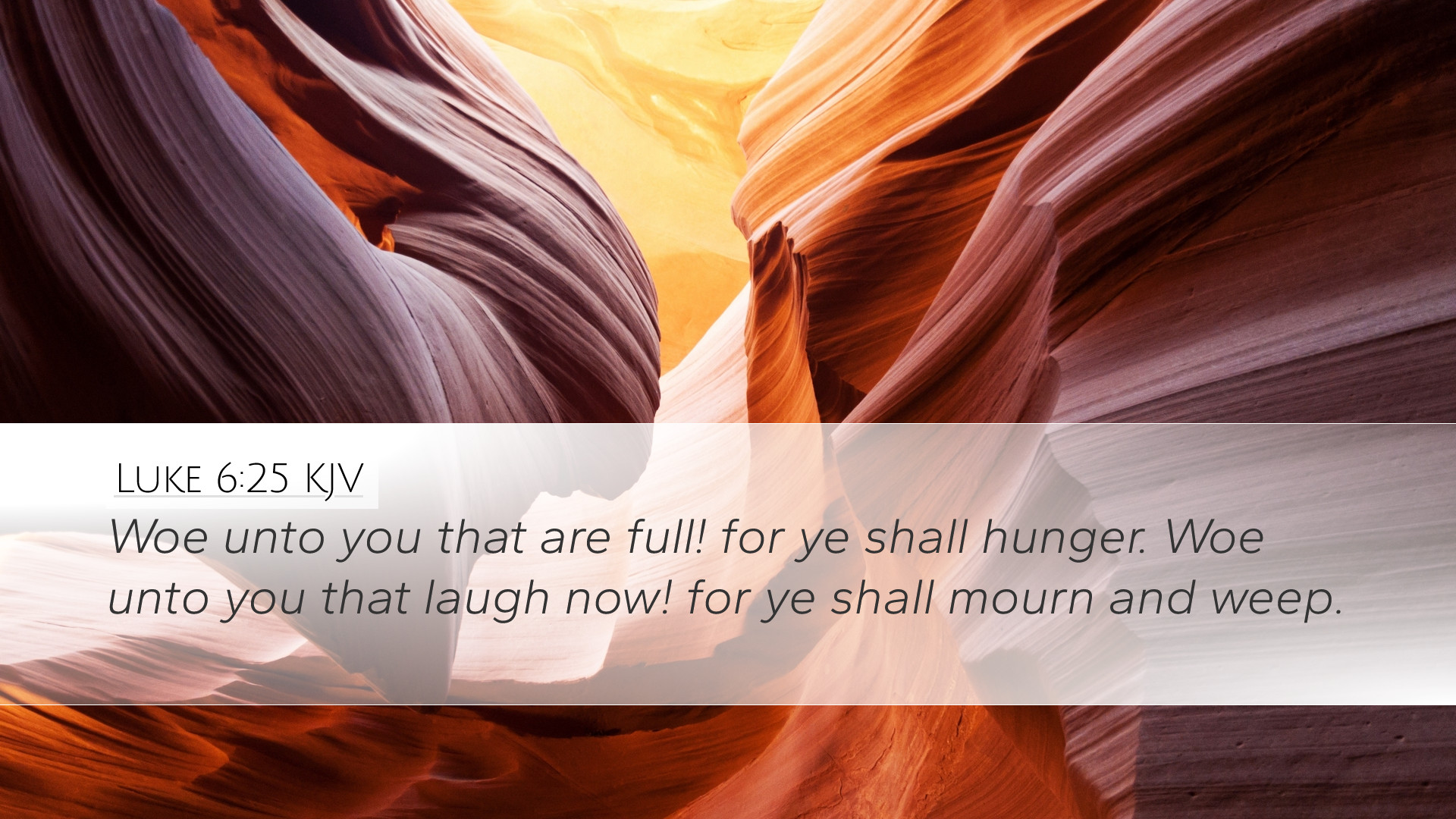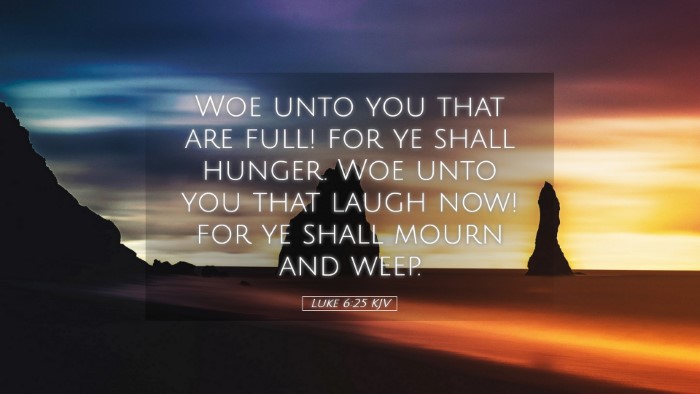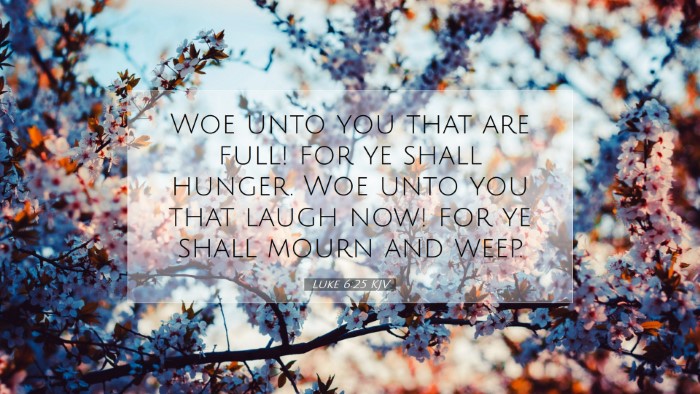Commentary on Luke 6:25
“Woe unto you that are full! for ye shall hunger. Woe unto you that laugh now! for ye shall mourn and weep.”
This verse forms part of Jesus' teaching commonly known as the "Sermon on the Plain," where He contrasts blessings and woes, offering profound insights into spiritual realities that challenge worldly thinking. Here, we explore interpretations from notable public domain commentators like Matthew Henry, Albert Barnes, and Adam Clarke, providing a rich tapestry of understanding for pastors, students, theologians, and Bible scholars.
Exegesis and Context
The context of Luke 6:25 is vital for interpretation. Jesus addresses His followers directly, offering both comforts and warnings. In the society of that time, to be "full" signified a sense of abundance and security, while "hunger" represented lack, need, or desperation. In contrast, the laughter referenced by Jesus often suggests superficial lightheartedness, devoid of deeper spiritual joy.
Matthew Henry's Insights
Henry emphasizes the reversal of fortunes inherent in Jesus' teachings. He reflects on the spiritual implications of being "full" in a material sense, cautioning that reliance on worldly satisfaction leads to spiritual hunger. He writes:
“Those that are full, that have their hearts and minds filled with the things of this world, may expect that when they come to the mercy seat, they shall find themselves empty.”
This speaks to the idea of temporal satisfaction versus eternal fulfillment, encouraging believers to seek spiritual nourishment over earthly gain. Henry also points out that the laughter Jesus refers to can be taken as a mockery of the troubles faced by the faithful; such joy will turn to sorrow when confronted with divine justice.
Albert Barnes' Commentary
Barnes provides a more direct application of the woes pronounced by Jesus. He asserts:
“The rich often indulge in a life of luxury and ease; they are not only satisfied with what they have, but they are disposed to overlook the spiritual truths that reveal their state before God.”
Here, Barnes links the idea of material riches with spiritual apathy. He elaborates that true Christian joy comes from recognizing one’s spiritual poverty and dependence on God, contrasting it with the laughter of those who remain blind to their spiritual condition. He asserts that such laughter will inevitably lead to mourning when the reality of divine judgment is faced.
Adam Clarke's Contributions
Clarke approaches this verse with a pastoral lens, emphasizing the personal nature of Jesus' words. He notes the distinction between worldly happiness and spiritual joy, stating:
“The laughter which Christ speaks of is often a false, outward manifestation that covers a deep spiritual malady.”
Clarke warns of the dangers posed by complacency, arguing that those who feel satisfied in their current state may be blindsided by future spiritual desolation. He further elaborates on the notion of mourning and weeping, highlighting that it serves as a prophetic warning that evokes self-reflection and repentance.
Theological Implications
The woes pronounced by Jesus should challenge readers to examine their spiritual lives in light of material abundance and social status. In doing so, they provide essential insights into themes of:
- Spiritual Hunger: True fulfillment lies not in worldly abundance but in dependence on God.
- Mourning and Repentance: Joy rooted in worldly satisfaction is fleeting; true joy stems from spiritual vitality.
- Divine Justice: The call to recognize one's state before God, which will ultimately result in either blessing or woe.
Practical Applications
Pastors and theologians may draw practical lessons from this verse that reflect on the contemporary church's relationship with materialism:
- Encouragement for the Poor in Spirit: Those feeling spiritually insufficient are invited to embrace the kingdom of God, finding solace in their spiritual hunger.
- A Call to Self-Examination: Believers must regularly assess the source of their joy and status before God, affirming their dependence on His grace.
- Worship and Mourning: Recognizing the balance between joyful worship and the sober recognition of sin may lead to a healthier church community.
Conclusion
Luke 6:25 serves as a profound reminder of the often counterintuitive nature of the Kingdom of God. The stark contrast drawn between fullness and hunger, laughter and mourning serves to delineate the spiritual landscape wherein true joy and satisfaction are found not through earthly means, but through a relationship with Jesus Christ. Each commentator brings valuable insights that resonate through the ages, providing fertile ground for reflection and growth among believers today.


